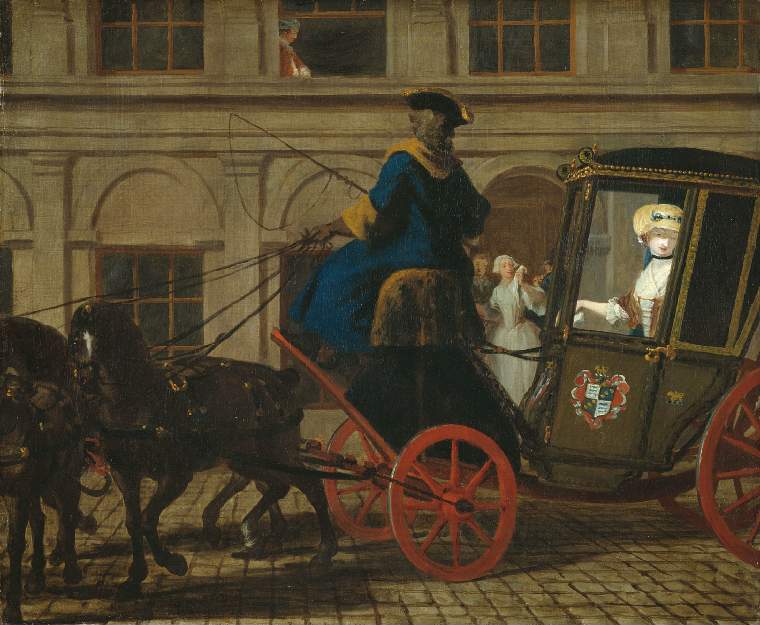It is inevitable that a man of true genius such
as I myself will sooner or later be misunderstood, if not slandered, by the
majority of his fellow creatures, by which I mean those who were both his
contemporaries and his latter-day successors. So I myself have been grossly
misunderstood in this way by the critics. For there is one nasty misconception
about me out there, namely that I lack what is commonly known as a sense of
humor. Rest assured, reader, however, that this is nothing but vile slander.
It
may behoove Mr.Richardson to defend himself against the charge. Very well. In
this scribbling, I shall prove to everyone’s satisfaction that I do indeed have
a great sense of humor.
To
begin, it is a matter of undisputed truth that my sense of humor descends from
a very noble line, one that may be traced back to Edward III in the 14th
century, indeed the earliest record in the history books of anyone displaying
my sense of humor. Unfortunately, I can’t remember what exactly the King did
that was so funny. Maybe it had something to do with invading the tribal
barbarians in Lothian.
But
as the reader may find it a bit tedious for me relate my long humorous
genealogy in toto, I shall limit myself to my own example.
The
earliest recorded instance of Mr.Richardson bringing great mirth to the world
occurred when he was a child of five years, still living in Derbyshire. Thus it
occurred that one day I accidentally fouled my britches in my father’s living
room, and in his presence too. Happily, my father did release a volley of
laughs upon seeing me thus, as I did too; but my outburst did not last nearly
as long as his. His immoderate fit of laughter lasted him many happy hours,
eventually prompting my mother to stop him by over-turning a bucket of water on
his head. Oh, what an amusing picture my family made than day! That was my
first recorded use of my sense of humor, though it must be admitted that I was
not a fully active agent in eliciting that laughter.
I
shall now present another instance of my sense of humor. The next time I
managed to bestow so much mirth on my parents occurred when I was a 13 year-old
child, a shifty-eyed rascal, now living in London, and having achieved that
dominance over my stomach which is known in the vulgar as bowel control. One
morning after coming down from my room, I walked up to my father and made the
following request:
“Pappa,
would you be so kind as to get for Mr. Richardson, the younger, a cup of tea?”
I requested most sheepishly.
Again,
my pappa burst into a volley of laughs, and I did join him too. “Oh, look how
our child has grown,” was the expression on my father’s lips, which he repeated
over and over for my mother’s benefit the rest of that day. “Look how MY boy
has grown,” he would say, with an exaggerated change in emphasis.
One
final proof of my sense of humor should suffice for now. This time I was a
fresher in the university. Some of my fellow students and I were enjoying a
hearty evening in the pub on Queen’s Lane, wherein we had libations in many
bottles of wine. Looking over all my fellow schoolmates as they were enjoying
their wondrous revelry, and being myself in the highest spirits, I jumped upon
the table and struck a mighty pose:
“Naturam
expellas furca licet, usque recurret,” I released in a potent shriek.
Incidentally, I normally say this when in high spirits.
Everyone
turned their eyes upon me, and the room room went a-hush. And when few seconds
later someone flung a bottle at me, thus knocking me down from the table, they
all burst into a volley of laughs. In due time, I joined them in laughing at
myself, and I was the last in the room to finish laughing too. 'Fore Gad, does
that not fully demonstrate my sense of humor? That lively anecdote was indeed
on my lips for many years afterwards; in fact, everyone was talking about it,
in the following words:
“Zounds,
man, it’s Richardson coming. Look alive! He’s probably going to relate that old
story about how someone in a pub tossed a bottle of wine at him when he climbed
on the table and tried to recite Horace. Make sure to look merry.”
So,
reader, my message to you is quite simple: always look merry when I am around.
It highly becomes your faces.

